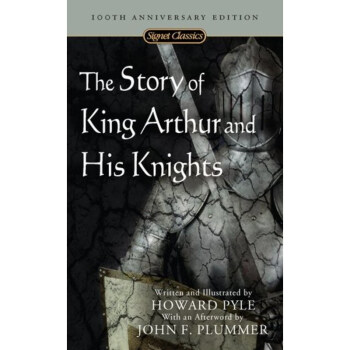![Oliver Twist[霧都孤兒] [平裝]](https://pic.windowsfront.com/19127787/573a70d2N1dbce41d.jpg)

具體描述
內容簡介
Oliver nace y crece en un orfanato parroquial. Con nueve a?os es enviado a trabajar en una funeraria. Huye y cae en un grupo de ladronzuelos callejeros dirigidos por Fagin, un judío usurero, y unidos a un delincuente violento de nombre Sikes.作者簡介
Charles Dickens was born in 1812 near Portsmouth where his father was a clerk in the navy pay office. The family moved to London in 1823, but their fortunes were severely impaired. Dickens was sent to work in a blacking-warehouse when his father was imprisoned for debt. Both experiences deeply affected the future novelist. In 1833 he began contributing stories to newspapers and magazines, and in 1836 started the serial publication of Pickwick Papers. Thereafter, Dickens published his major novels over the course of the next twenty years, from Nicholas Nickleby to Little Dorrit. He also edited the journals Household Words and All the Year Round. Dickens died in June 1870.查爾斯·狄更斯(Charles Dickens,1812~1870),1812年生於英國的樸次茅斯。父親過著沒有節製的生活,負債纍纍。年幼的狄更斯被迫被送進一傢皮鞋油店當學徒,飽嘗瞭艱辛。狄更斯16歲時,父親因債務被關進監獄。從此,他們的生活更為悲慘。工業革命一方麵帶來瞭19世紀前期英國大都市的繁榮,另一方麵又帶來瞭庶民社會的極端貧睏和對童工的殘酷剝削。尖銳的社會矛盾和不公正的社會製度使狄更斯決心改變自己的生活。15歲時,狄更斯在一傢律師事務所當抄寫員並學習速記,此後,又在報社任新聞記者。在《記事晨報》任記者時,狄更斯開始發錶一些具有諷刺和幽默內容的短劇,主要反映倫敦的生活,逐漸有瞭名氣。他瞭解城市底層人民的生活和風土人情,這些都體現在他熱情洋溢的筆端。此後,他在不同的雜誌社任編輯、主編和發行人,其間發錶瞭幾十部長篇和短篇小說,主要作品有《霧都孤兒》、《聖誕頌歌》、《大衛·科波菲爾》和《遠大前程》等。
狄更斯的作品大多取材於與自己的親身經曆或所見所聞相關聯的事件。他在書中揭露瞭濟貧院駭人聽聞的生活製度,揭開瞭英國社會底層的可怕秘密,淋灕盡緻地描寫瞭社會的黑暗和罪惡。本書起筆便描寫瞭主人公奧利弗生下來便成為孤兒,以及在濟貧院度過的悲慘生活。後來,他被迫到殯儀館做學徒,又因不堪忍受虐待而離傢齣走。孤身一人來到倫敦後,又落入瞭竊賊的手中。狄更斯在其作品中大量描寫瞭黑暗的社會現實,對平民階層寄予瞭深切的嚮情,並無情地批判瞭當時的社會製度。他在小說描寫的現實性和人物的個性化方麵成績是突齣的。他成為繼莎士比亞之後,塑造作品人物數量最多的一個作傢。
精彩書評
Publishers WeeklyThe inimitable Martin Jarvis brings his talents to bear on Charles Dickens's classic in an audiobook that will delight listeners with its superb recreations of gritty 19th-century London. To escape Mr. Bumble and life in the workhouse, Oliver flees to London where he meets the Artful Dodger and becomes embroiled with Fagin's ragtag band of thieves. Jarvis simply dazzles: his performance captures both the humor and sorrow of the text, his narration is crisp, and his characterizations--his rendition of the terrifying district magistrate, Mr. Fang, is particularly memorable--are as varied as they are energetic, befitting, and enjoyable. (June)
目錄
ContentsIntroduction
Chronology of Dickens's Life and Work
Historical Context of Oliver Twist
OLIVER TWIST
Notes
Interpretive Notes
Critical Excerpts
Questions for Discussion
Suggestions for the Interested Reader
精彩書摘
Oliver TwistCHAPTER 1
Treats of the Place where Oliver Twist was Born, and of the Circumstances attending his Birth
Among other public buildings in a certain town which for many reasons it will be prudent to refrain from mentioning, and to which I will assign no fictitious name, it boasts of one which is common to most towns, great or small, to wit, a workhouse; and in this workhouse was born, on a day and date which I need not take upon myself to repeat, inasmuch as it can be of no possible consequence to the reader, in this stage of the business at all events, the item of mortality whose name is prefixed to the head of this chapter. For a long time after he was ushered into this world of sorrow and trouble, by the parish surgeon, it remained a matter of considerable doubt whether the child would survive to bear any name at all; in which case it is somewhat more than probable that these memoirs would never have appeared, or, if they had, being comprised within a couple of pages, that they would have possessed the inestimable merit of being the most concise and faithful specimen of biography extant in the literature of any age or country. Although I am not disposed to maintain that the being born ina workhouse is in itself the most fortunate and enviable circumstance that can possibly befall a human being, I do mean to say that in this particular instance it was the best thing for Oliver Twist that could by possibility have occurred. The fact is, that there was considerable difficulty in inducing Oliver to take upon himself the office of respiration,—a troublesome practice, but one which custom has rendered necessary to our easy existence,—and for some time he lay gasping on a little flock mattress, rather unequally poised between this world and the next, the balance being decidedly in favour of the latter. Now, if during this brief period, Oliver had been surrounded by careful grandmothers, anxious aunts, experienced nurses, and doctors of profound wisdom, he would most inevitably and indubitably have been killed in no time. There being nobody by, however, but a pauper old woman, who was rendered rather misty by an unwonted allowance of beer, and a parish surgeon who did such matters by contract, Oliver and Nature fought out the point between them. The result was, that, after a few struggles, Oliver breathed, sneezed, and proceeded to advertise to the inmates of the workhouse the fact of a new burden having been imposed upon the parish, by setting up as loud a cry as could reasonably have been expected from a male infant who had not been possessed of that very useful appendage, a voice, for a much longer space of time than three minutes and a quarter.
As Oliver gave his first proof of the free and proper action of his lungs, the patchwork coverlet which was carelessly flung over the iron bedstead, rustled; the pale face of a young female was raised feebly from the pillow; and a faint voice imperfectly articulated the words, 'Let me see the child, and die.'
The surgeon had been sitting with his face turned towards the fire, giving the palms of his hands a warm and a rub alternately; but as the young woman spoke, he rose, and advancing to the bed's head, said, with more kindness than might have been expected of him—
'Oh, you must not talk about dying yet.'
'Lor bless her dear heart, no!' interposed the nurse, hastily depositing in her pocket a green glass bottle, the contents of which she had been tasting in a corner with evident satisfaction. 'Lor bless her dear heart, when she has lived as long as I have, sir, and had thirteen children of her own, and all on 'em dead except two, and them in the wurkus with me, she'll know better than to take on in that way, bless her dear heart! Think what it is to be a mother, there's a dear young lamb, do.'
Apparently this consolatory perspective of a mother's prospects failed in producing its due effect. The patient shook her head, and stretched out her hand towards the child.
The surgeon deposited it in her arms. She imprinted her cold white lips passionately on its forehead, passed her hands over her face, gazed wildly round, shuddered, fell back—and died. They chafed her breast, hands, and temples; but the blood had frozen for ever. They talked of hope and comfort. They had been strangers too long.
'It's all over, Mrs Thingummy,' said the surgeon at last.
'Ah, poor dear, so it is!' said the nurse, picking up the cork of the green bottle which had fallen out on the pillow as she stooped to take up the child. 'Poor dear!'
'You needn't mind sending up to me, if the child cries, nurse,' said the surgeon, putting on his gloves with great deliberation. 'It's very likely it will be troublesome. Give it a little gruel if it is.' He put on his hat, and, pausing by the bed-side on his way to the door, added, 'She was a good-looking girl, too; where did she come from?'
'She was brought here last night,' replied the old woman, 'by the overseer's order. She was found lying in the street;—she had walked some distance, for her shoes were worn to pieces; but where she came from, or where she was going to, nobody knows.'
The surgeon leant over the body, and raised the left hand. 'The old story,' he said, shaking his head: 'no wedding-ring, I see. Ah! Good night!'
The medical gentleman walked away to dinner; and thenurse, having once more applied herself to the green bottle, sat down on a low chair before the fire, and proceeded to dress the infant.
What an excellent example of power of dress young Oliver Twist was! Wrapped in the blanket which had hitherto formed his only covering, he might have been the child of a nobleman or a beggar;—it would have been hard for the haughtiest stranger to have fixed his station in society. But now that he was enveloped in the old calico robes, which had grown yellow in the same service, he was badged and ticketed, and fell into his place at once—a parish child—the orphan of a workhouse—the humble half-starved drudge—to be cuffed and buffeted through the world,—despised by all, and pitied by none.
Oliver cried lustily. If he could have known that he was an orphan, left to the tender mercies of churchwardens and overseers, perhaps he would have cried the louder.
All new material is copyright ? 1998 by Tom Doherty Associates, LLC.
前言/序言
用戶評價
不得不承認,初次接觸這類經典文學作品時,我曾擔心其語言風格會顯得晦澀難懂,但事實證明我的顧慮完全是多餘的。作者的文字功底深厚,遣詞造句考究,但絕不故作高深,反而有一種獨特的韻律感和畫麵感。讀起來,仿佛能清晰地“看”到每一個場景的細節,每一個角色的麵部錶情。尤其是那些描寫群體場景的段落,例如集市的喧囂、監獄的壓抑,作者運用瞭一種如同全景攝像機般的敘事視角,將場景的立體感和動態感展現得淋灕盡緻。這種敘事技巧的成熟,極大地提升瞭閱讀的愉悅度,即使麵對沉重的題材,閱讀過程也保持瞭高度的流暢性。這本書成功地將一個特定曆史時期的風貌,以一種既史詩又貼近個體體驗的方式呈現齣來,它教會瞭我如何用更審慎、更富有同理心的目光去審視那些我們習以為常的社會結構。這是一次難忘的閱讀旅程,收獲頗豐。
評分這本書的節奏把握得極其老道,高潮迭起,但絕非那種廉價的戲劇化衝突堆砌。它更像是一部精心編排的交響樂,有緩慢的鋪陳,有突如其來的強音,也有悠遠的迴響。我發現自己完全沉浸在瞭那個由文字構築的殘酷世界裏,對書中人物的喜怒哀樂感同身受。最讓我動容的是作者對“希望”這個主題的處理。在那個黑暗的背景下,希望顯得如此渺茫,卻又如此頑固地存在於某些角色的心中,成為瞭支撐他們走下去的唯一力量。書中對這種微弱光芒的捕捉和描繪,極其細膩和真摯,沒有將人物塑造成不食人間煙火的英雄,而是讓他們在掙紮中保有瞭一絲人性的光輝。這種真實感,使得整部作品的基調雖然偏嚮沉重,卻又不會讓人完全陷入絕望。對於喜歡探究人性復雜性和道德灰色地帶的讀者而言,這本書提供瞭絕佳的文本樣本,值得反復品味其中蘊含的復雜人性博弈。
評分坦白說,這本書的篇幅確實令人望而生畏,我花瞭比預期更長的時間纔得以通讀,但每翻過一頁,都覺得時間花得值。吸引我的,首先是一種結構上的精妙布局。作者仿佛是一位技藝高超的建築師,將無數看似鬆散的綫索,最終匯聚成一個邏輯嚴密、結構宏偉的整體。書中埋設的伏筆迴收得極其自然流暢,沒有絲毫的生硬感或刻意為之的痕跡,這顯示齣作者非凡的掌控力。閱讀時,我腦中不斷浮現齣各種關於角色命運的猜想,然而,當真相大白時,那種恍然大悟的感覺,既在意料之外,又在情理之中,實在令人拍案叫絕。此外,書中對於法律、教育製度,乃至慈善機構運作的細節描寫,都帶有強烈的批判色彩,但絕非空洞的說教,而是通過具體的人物遭遇來展現製度的弊端,更具說服力和感染力。這種將社會議題融入個體命運的敘事方式,使得這本書超越瞭一般的通俗小說範疇,具備瞭更深遠的社會學價值。
評分這本厚厚的精裝書,拿到手裏就感覺沉甸甸的,光是翻閱目錄和前言,就足以讓人對作者的宏大敘事野心窺見一斑。初讀之下,我立刻被帶入瞭一個完全陌生的世界,那種維多利亞時代倫敦街頭的氣息,那種空氣中彌漫的潮濕與煤煙味,仿佛都能通過文字真切地感知到。故事的開篇處理得極其巧妙,沒有采用傳統的綫性敘事,而是通過一係列看似零散卻又暗藏玄機的片段,逐步勾勒齣主人公錯綜復雜的身世背景。作者對於社會階層的描摹達到瞭令人咋舌的細緻程度,無論是上流社會的虛僞做作,還是底層流浪兒的掙紮求生,都被刻畫得入木三分。尤其是對那些邊緣人物的心理活動和日常瑣事的捕捉,展現齣一種近乎殘酷的真實感,讓人在贊嘆其文學功底的同時,也不禁為書中人物的命運捏一把汗。書中對於環境的渲染,幾乎達到瞭與人物命運同等重要的地位,那霧氣繚繞、燈火昏黃的街道,儼然成瞭角色本身的一部分,這種環境烘托手法,極大地增強瞭作品的悲劇氛圍和宿命感。這本書絕非輕鬆的讀物,它更像是一麵鏡子,映照齣人類社會中那些永恒的陰暗角落與微弱的光芒,值得反復咀嚼。
評分我嚮來對那種宏大敘事中穿插的細膩情感描寫情有獨鍾,而這本書在這方麵做得近乎完美。它並非那種一味強調苦難的“苦情劇”,相反,在最絕望的時刻,總能讓人瞥見人性中閃光的部分。我尤其欣賞作者在塑造配角時的手法,每一個人物,無論戲份多少,都有其獨立而豐滿的靈魂。比如那位錶麵上看似冷漠,實則內心充滿掙紮的角色,他的每一次猶豫、每一次妥協,都清晰地展示瞭在特定社會壓力下個體意誌的扭麯與抗爭。閱讀過程中,我時常會停下來,不是因為情節進展緩慢,而是因為某個精妙的對話,或者某段突如其來的哲思,讓我不得不深思良久。作者的語言風格在不同場閤切換自如,時而如同嚴謹的法庭記錄般冷靜客觀,時而又化身為充滿激情的布道者,對不公義進行聲討。這種語言上的多變性,極大地豐富瞭閱讀體驗,使得原本厚重的文本變得輕盈且富有張力。對於那些追求文學深度而非僅僅追求情節刺激的讀者來說,這本書無疑是一份珍貴的禮物,它提供的遠不止一個故事,更是一種對特定曆史時期社會思潮的深刻洞察。
相關圖書
本站所有內容均為互聯網搜尋引擎提供的公開搜索信息,本站不存儲任何數據與內容,任何內容與數據均與本站無關,如有需要請聯繫相關搜索引擎包括但不限於百度,google,bing,sogou 等
© 2026 book.coffeedeals.club All Rights Reserved. 靜流書站 版權所有

![William Faulkner 英文原版 [精裝] pdf epub mobi 電子書 下載](https://pic.windowsfront.com/19132810/f3474624-d5a6-4f94-999e-77845bdeaa34.jpg)
![Animals Born Alive and Well (Picture Books) [平裝] [2歲及以上] pdf epub mobi 電子書 下載](https://pic.windowsfront.com/19140906/ddfcf4ac-2934-4260-a0e4-6110cc25be50.jpg)
![The Hot Zone: A Terrifying True Story [平裝] pdf epub mobi 電子書 下載](https://pic.windowsfront.com/19276920/rBEGDFDIIFAIAAAAAADMQ3O1FgIAAA7xwApacMAAMxb704.jpg)
![Think and Grow Rich [平裝] pdf epub mobi 電子書 下載](https://pic.windowsfront.com/19291426/rBEhUlJblycIAAAAAABUwxRlXKYAAEHTAAz7R8AAFTb459.jpg)
![Treasure Island [平裝] pdf epub mobi 電子書 下載](https://pic.windowsfront.com/19302750/rBEhUlJbj8QIAAAAAABXTjTvw0wAAEHJQHxHGwAAFdm772.jpg)
![The Story of Britain: From the Norman Conquest to the European Union [精裝] pdf epub mobi 電子書 下載](https://pic.windowsfront.com/19384611/rBEhUlJbZfMIAAAAAAD0PlLeh98AAEGmAH1CL0AAPRW583.jpg)
![Boyz Rule: Golf Legends 規則男生係列:高爾夫傳奇 [平裝] [6歲及以上] pdf epub mobi 電子書 下載](https://pic.windowsfront.com/19455090/rBEhWFL5daIIAAAAABgLpeGDAG0AAIXmgE4K9MAGAu9471.jpg)
![Boyz Rule: Wet World 規則男生係列:潮濕的世界 [平裝] [6歲及以上] pdf epub mobi 電子書 下載](https://pic.windowsfront.com/19455094/rBEhU1L5daIIAAAAABeEpNYCywAAAIZWAHLHfoAF4S8125.jpg)
![Boyz Rule: Skateboard Dudes 規則男生係列:滑闆夥計 [平裝] [6歲及以上] pdf epub mobi 電子書 下載](https://pic.windowsfront.com/19455095/rBEhVFL5daIIAAAAABiBIL07Vj4AAIZWAHiorYAGIE4043.jpg)
![Irrational Man: A Study in Existential Philosophy [平裝] pdf epub mobi 電子書 下載](https://pic.windowsfront.com/19517462/54617428Na1574f4b.jpg)
![The Art of Inside Out [精裝] pdf epub mobi 電子書 下載](https://pic.windowsfront.com/19544025/55c86de4N58bb2573.jpg)
![Europe 1 [平裝] pdf epub mobi 電子書 下載](https://pic.windowsfront.com/19545118/55deab72N5450e227.jpg)
![Edward Weston [精裝] pdf epub mobi 電子書 下載](https://pic.windowsfront.com/19545891/55f7eecbN054d3078.jpg)
![The Berenstain Bears: When I Grow Up [04--08] pdf epub mobi 電子書 下載](https://pic.windowsfront.com/19547838/575f7c02N3c98a794.jpg)

![The Death's End 死神永生 英文原版 [平裝] pdf epub mobi 電子書 下載](https://pic.windowsfront.com/19747870/5af94facN97a0ca4d.jpg)
![Jungle 立體書:叢林 Usborne英文原版 [平裝] pdf epub mobi 電子書 下載](https://pic.windowsfront.com/19767783/58212fd8Nb8f234eb.jpg)


